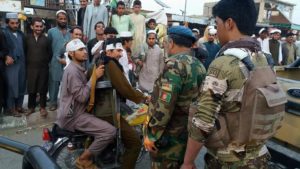Latest News
Uncertainty Persists Over Gov’t-Taliban Second Ceasefire Declaration
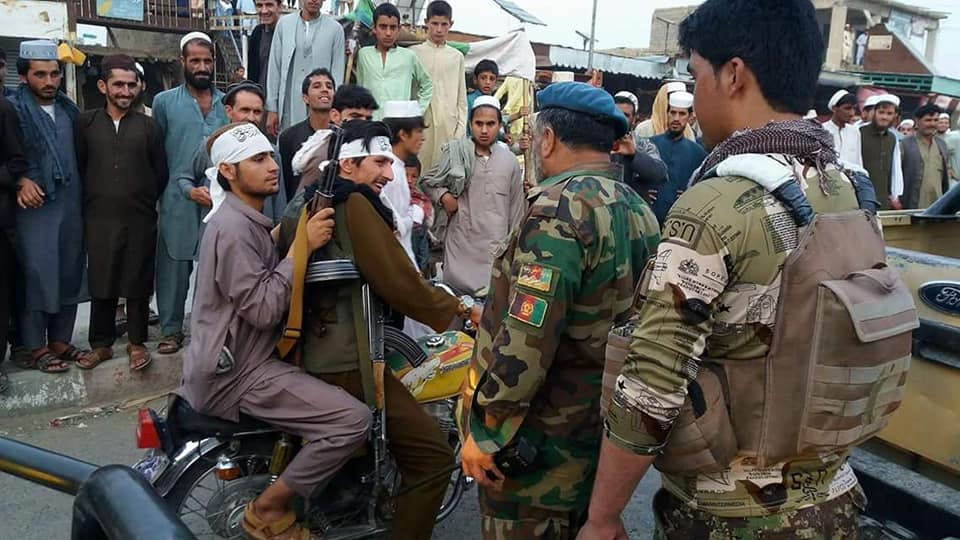
The Taliban in a message on the occasion of upcoming Eid festival have shown no sign of having a second ceasefire with the Afghan government - which is already in consultations with stakeholders to take its decision on the issue.
The Taliban leader Haibatullah Akhundzada in his Eid al-Adha message has reiterated the call for direct peace talks with the United states.
Part of the Taliban's message for the Islamic holy days, said that the Americans propose options other than constructive negotiations which they believe neither rational nor practical.
"...negotiations must be sincere and productive free from any fraud and deception and must revolve around the core issue and not be used for propaganda or misleading the common thinking," it said.
The Taliban in the statement released on Saturday insisted that bringing peace and security are among their highest priorities. "But peace will remain elusive during an occupation and neither is salvation possible without the establishment of an Islamic authority," it said.
In the statement, the group has shown no sign of the plan to declare a second ceasefire with the Afghan government - which considers it as a path towards ensuring lasting peace in war-weary country.
However, the group's spokesman Zabidullah Mujahid had earlier after announcing Eid Al-Fitre truce insisted that they were considering a ceasefire every year during Eid days but because of security concerns they were not declaring it publically.
Following the matter, the chairman of Afghanistan's High Peace Council Abdul Karim Khalili said that the Afghan people believe in peace and that they are hopeful of having a bilateral ceasefire between the Taliban and the government in upcoming days.
"We urge the Taliban to declare ceasefire. This is in line with the will of Afghan people," he said.
This comes as President Ashraf Ghani said that consultative meetings are underway regarding the announcement of a ceasefire during Eid Al-Adha and that the government would announce its decision upon the completion of consultations and recommendations being offered to the government.
The president made the remarks during a meeting with the members of the High Peace Council and the Ulemas Council of Afghanistan in Presidential Palace.
Qiamuddin Kashaf, the head of Afghanistan's Ulema Council said that they want a ceasefire which could pave way for ensuring peace in the country.

Latest News
OIC special envoy meets with Pakistani officials for talks on Afghanistan
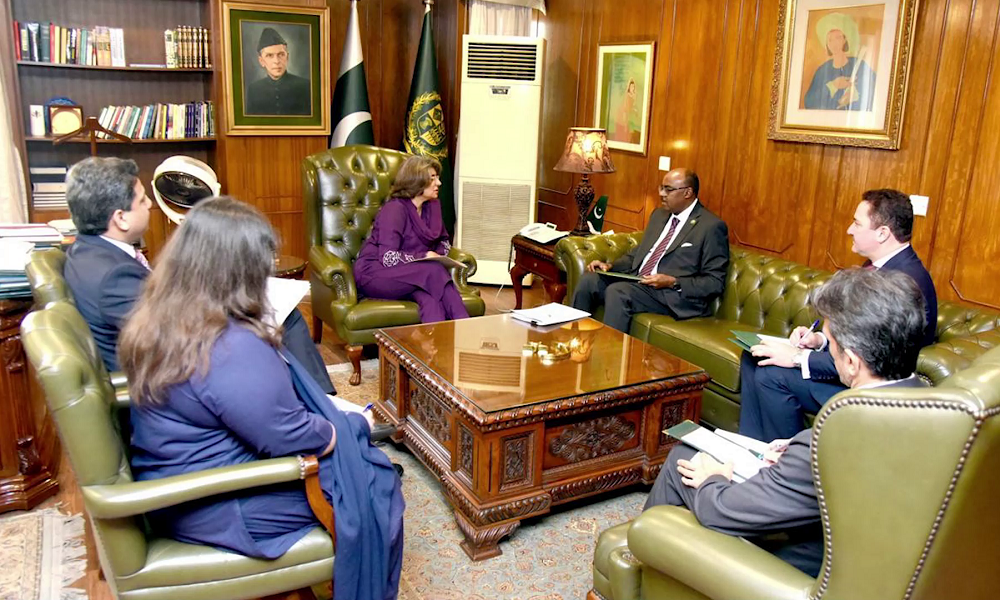
The Organization of Islamic Cooperation’s special envoy for Afghanistan Tarig Ali Bakheet this week met with Pakistan’s foreign minister Amna Baloch for talks on the situation in Afghanistan.
According to a statement issued by the OIC, both sides shared perspectives on political, economic and humanitarian issues regarding Afghanistan.
Bakheet also delivered an official written message from the OIC Secretary-General on the latest developments regarding the organization’s work and activities in Afghanistan to support the Afghan people.
Both sides underscored the need to continue to coordinate, consult, and cooperate in the interest of stability and progress in Afghanistan.
Bakheet also met with Ahmed Naseem Warraich, Additional Secretary (Afghanistan & West Asia). During this meeting, both sides exchanged views on various international formats for engagement on Afghanistan and possibilities to strengthen and enhance these initiatives.
“They also discussed the efforts of the OIC and the Islamic Republic of Pakistan to pursue a constructive dialogue with the de facto authorities on various issues including girls’ education, counter-terrorism, and humanitarian aspects,” the OIC’s statement read.
Bakheet also met with Kazim Niaz, Pakistan’s minister of economic affairs and shared the progress made in the operationalization of the Afghanistan Humanitarian Trust Fund (AHTF) since the mandate entrusted by the extraordinary session of the OIC Council of Foreign Ministers on the ‘Humanitarian Situation in Afghanistan” held in Islamabad on 19 December 2021.
He emphasized the need to strengthen the AHTF by mobilizing more resources for the Fund.
On his part, Niaz highlighted that Pakistan played a leading role in collaborating in the initial response to the humanitarian situation in Afghanistan in 2021.
He also shed light on Pakistan-funded projects in Afghanistan including hospitals, scholarships, and infrastructure projects.
Latest News
IEA rejects latest UN report on women in Afghanistan
“This survey is not accurate. Unfortunately, like opinions, it is not always prepared based on information from inside Afghanistan but on propaganda,” said Mujahid.
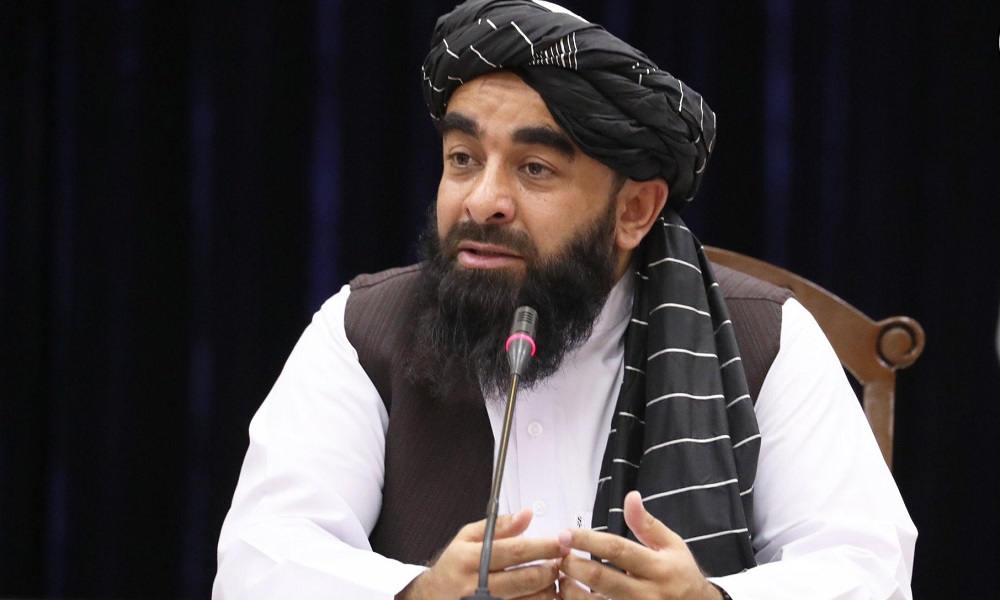
The Islamic Emirate’s spokesman Zabihullah Mujahid said on Thursday in response to the UN Women report released this week that it is untrue and is based on "propaganda".
“This survey is not accurate. Unfortunately, like opinions, it is not always prepared based on information from inside Afghanistan but on propaganda,” said Mujahid.
“We have many women in Afghanistan who are engaged in business and work and have progressed in their lives. We still have different fields where women are active in the framework of government,” he added.
According to the report, the Islamic Emirate’s implementation of a series of decrees, directives and practices over the past three years has been “aimed at systematically removing women from Afghan public life and decision-making positions – across almost all sectors.
“This stream of edicts has also included a ban on girls and young
women pursuing secondary and university-level education in Afghanistan,” the report read.
The UN also stated that the near “wholesale exclusion of women and girls from broader society, coupled with the overlapping economic and humanitarian crises” has caused a marked deterioration in the living conditions for the overwhelming majority of Afghans.
UN Women also said this “is resulting in shifts in community attitudes towards gender norms and a mental health crisis within families across Afghanistan.”
Latest News
IEA repatriates bodies of two killed in attack on Afghan migrants on Iran-Pakistan border
Presently, the bodies of two martyrs, along with 34 eyewitnesses, some of whom sustained injuries during the incident, have been repatriated by the committee
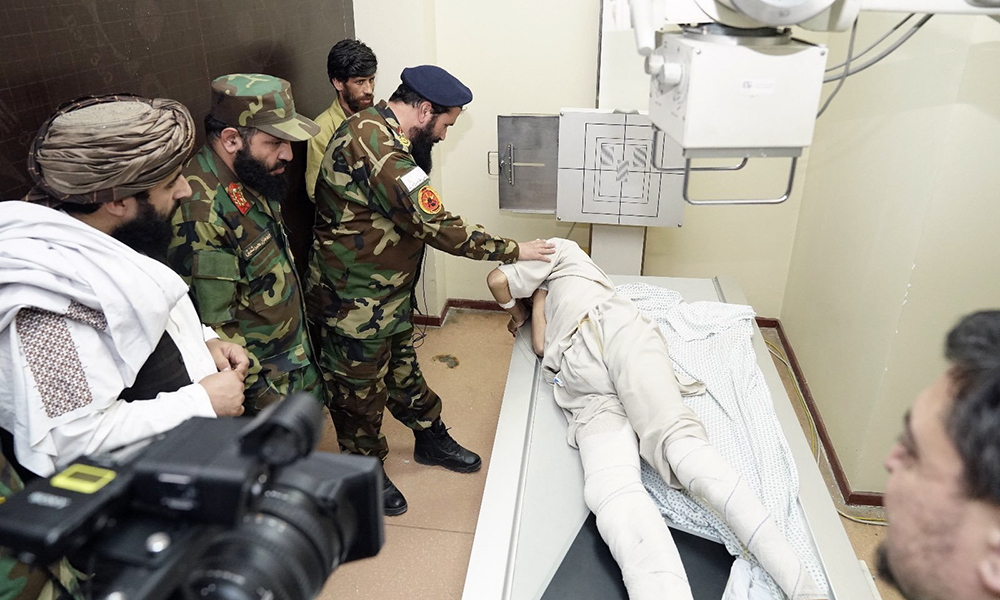
The Islamic Emirate of Afghanistan (IEA) has repatriated the bodies of two deceased Afghans killed in the Kalgan Valley in Iran, deputy spokesman Hamdullah Fitrat said on Thursday.
Fitrat stated that following reports of the shooting of Afghan migrants along the Iran-Pakistan border earlier this month, the Islamic Emirate launched an investigation.
“Thus far, based on the collected evidence, explosions and gunfire have targeted Afghan nationals within the Kalgan Valley, situated in Iranian territory,” Fitrat said.
“Presently, the bodies of two martyrs, along with 34 eyewitnesses, some of whom sustained injuries during the incident, have been repatriated by the committee.
“Certain individuals remain in Iran and Pakistan, and the committee is actively engaged in locating and repatriating them,” he said.
According to him, the investigation remains ongoing, and that detailed findings will be “disseminated upon the conclusion of the investigation.”
Two weeks ago reports emerged of the killing of migrants at the Iran-Pakistan border.
An Iranian-based human rights organization Haalvsh reported that as many as 250 Afghan migrants had been gunned down while trying to cross the border.
Haalvsh reported the group of migrants, totalling about 300, had also been targeted with RPGs.
Iran’s special envoy and ambassador to Kabul Hassan Kazemi Qomi said at the time that the reports were not true.
“As of now, reliable sources confirm that the news about the deaths of dozens of illegal citizens at the Saravan border is not true," he said.
Qomi said however that responding “legally” to the “illegal entry of unauthorized nationals” was “the legitimate right of countries, and the border guards of any country are obliged to prevent the entry of illegal nationals.”
-

 Business5 days ago
Business5 days agoChina to offer Afghanistan tariff-free trade
-
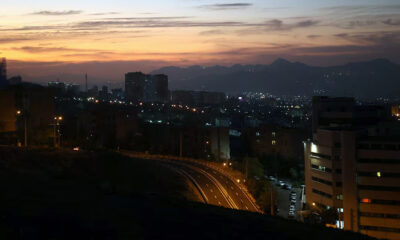
 Regional5 days ago
Regional5 days agoSatellite photos show Israel hit Iran former nuclear weapons test building, missile facilities, researchers say
-

 Sport5 days ago
Sport5 days agoAfghanistan beat Bangladesh 3-2 in AFC U17 Asian Cup Qualifiers
-
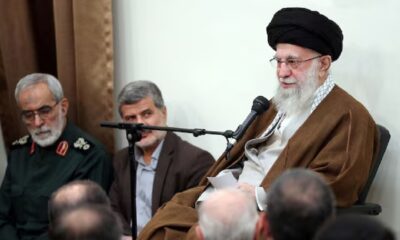
 World5 days ago
World5 days agoIranian officials to determine how to respond to Israel, Supreme Leader says
-
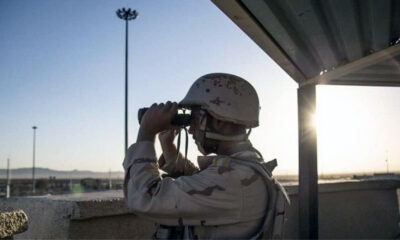
 Latest News5 days ago
Latest News5 days agoTen Iranian border guards killed in attack near southeastern border
-

 Sport5 days ago
Sport5 days agoAfghanistan A to face Sri Lanka A in maiden T20 Emerging Teams Asia Cup final
-
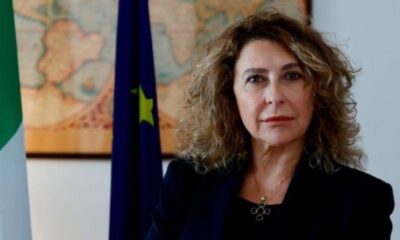
 Latest News5 days ago
Latest News5 days agoSabrina Ugolini appointed as new ambassador of Italy to Afghanistan
-

 Latest News3 days ago
Latest News3 days agoHamid Karzai praises BRICS stance on Afghanistan

